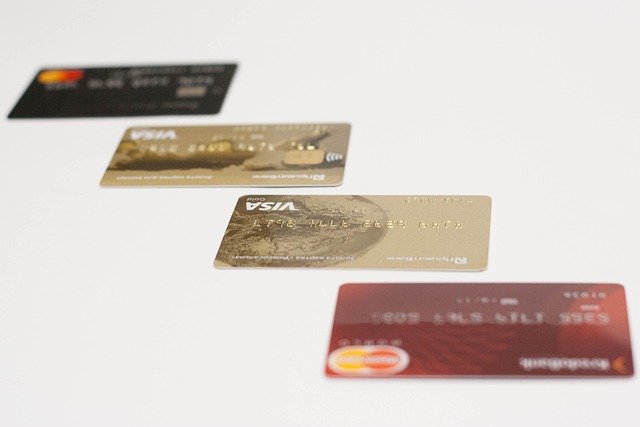Choosing the Right Credit Card: A Comprehensive Guide
Credit cards have become an integral part of modern financial life, offering convenience, rewards, and financial flexibility. However, with countless options available, selecting the right credit card can be a daunting task. This article will guide you through the process of choosing a credit card that best suits your needs, explore benefits beyond rewards, and help you compare fees and interest rates.

Credit cards have become an integral part of modern financial management, offering convenience, security, and potential rewards for everyday purchases. However, the abundance of options can make selecting the right card feel overwhelming. Understanding the fundamental aspects of credit cards and knowing what to look for can transform this process from confusing to straightforward.
How to Choose a Credit Card That Fits Your Needs
The foundation of choosing the right credit card lies in honest self-assessment. Consider your monthly spending patterns, payment habits, and primary reasons for wanting a credit card. If you consistently pay off your balance in full each month, you can focus on rewards and benefits rather than interest rates. Conversely, if you occasionally carry a balance, prioritising low interest rates becomes crucial. Your credit score also plays a significant role in determining which cards you qualify for, with excellent credit opening doors to premium options and poor credit limiting choices to rebuilder cards.
Credit Card Benefits Beyond Rewards
While cashback and points often grab attention, credit cards offer numerous other valuable benefits. Purchase protection can safeguard expensive items against damage or theft, whilst extended warranties provide additional coverage beyond manufacturer guarantees. Travel insurance, airport lounge access, and concierge services add substantial value for frequent travellers. Some cards offer price protection, automatically refunding the difference if you find a lower price elsewhere. Section 75 protection under the Consumer Credit Act provides additional security for purchases between £100 and £30,000, making credit cards particularly valuable for significant purchases.
Comparing Credit Card Fees and Interest Rates
Understanding the true cost of credit card ownership requires examining all associated fees and rates. The Annual Percentage Rate (APR) represents the yearly cost of borrowing, but this varies significantly between providers and card types. Balance transfer fees, foreign transaction charges, and cash advance costs can quickly accumulate. Some cards impose annual fees that may be justified by premium benefits, whilst others offer fee-free options with basic features.
| Card Type | Provider | APR Range | Annual Fee | Key Features |
|---|---|---|---|---|
| Cashback Card | Barclaycard | 22.9% - 28.9% | £0 | 0.25% cashback on purchases |
| Rewards Card | American Express | 22.2% - 57.7% | £25 - £575 | Points system, travel benefits |
| Balance Transfer | Santander | 18.9% - 22.9% | £0 | 0% intro rate for 20 months |
| Travel Card | Halifax | 18.9% - 22.9% | £0 | No foreign transaction fees |
| Premium Card | HSBC | 22.9% - 59.9% | £195 | Airport lounge access, insurance |
Prices, rates, or cost estimates mentioned in this article are based on the latest available information but may change over time. Independent research is advised before making financial decisions.
Building and Maintaining Good Credit
Your credit card usage significantly impacts your credit score, which affects future borrowing opportunities. Maintaining low credit utilisation ratios, ideally below 30% of your available credit, demonstrates responsible management. Making payments on time consistently builds positive payment history, the most influential factor in credit scoring. Setting up direct debits for at least the minimum payment helps avoid missed payments, though paying the full balance prevents interest charges.
Security Features and Fraud Protection
Modern credit cards incorporate sophisticated security measures to protect against fraud. Chip and PIN technology, contactless payment limits, and real-time transaction monitoring provide multiple layers of protection. Most providers offer zero liability policies for unauthorised transactions, provided you report suspicious activity promptly. Mobile banking apps enable instant notifications and card freezing capabilities, giving you immediate control over your account security.
Making Your Final Decision
After evaluating your needs, comparing options, and understanding costs, the decision process becomes clearer. Consider starting with one card that best matches your primary use case, whether that’s everyday spending, balance transfers, or travel. You can always add additional cards later as your needs evolve or credit profile improves. Remember that the best credit card is one you can manage responsibly whilst maximising benefits relevant to your lifestyle and financial goals.




